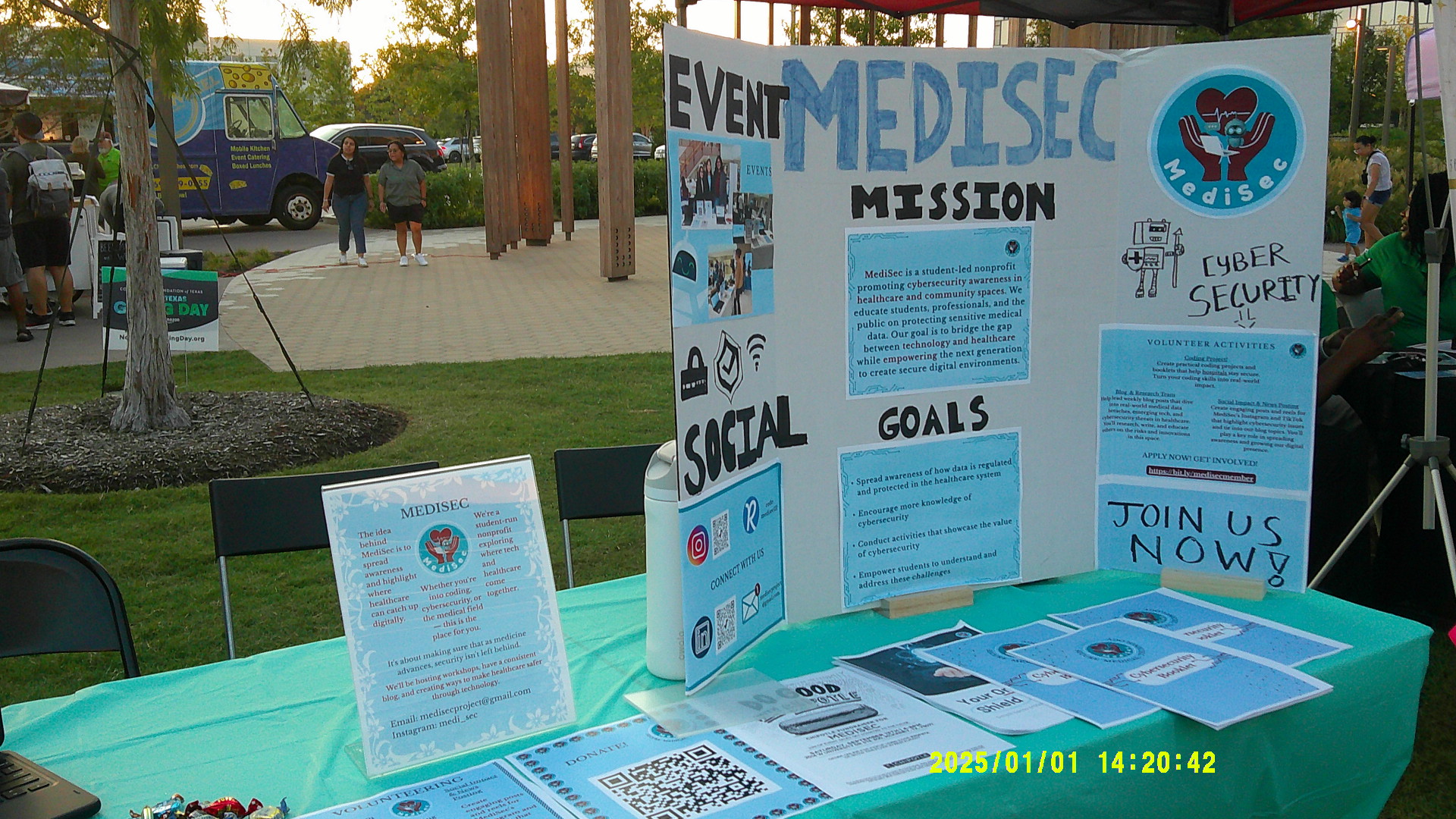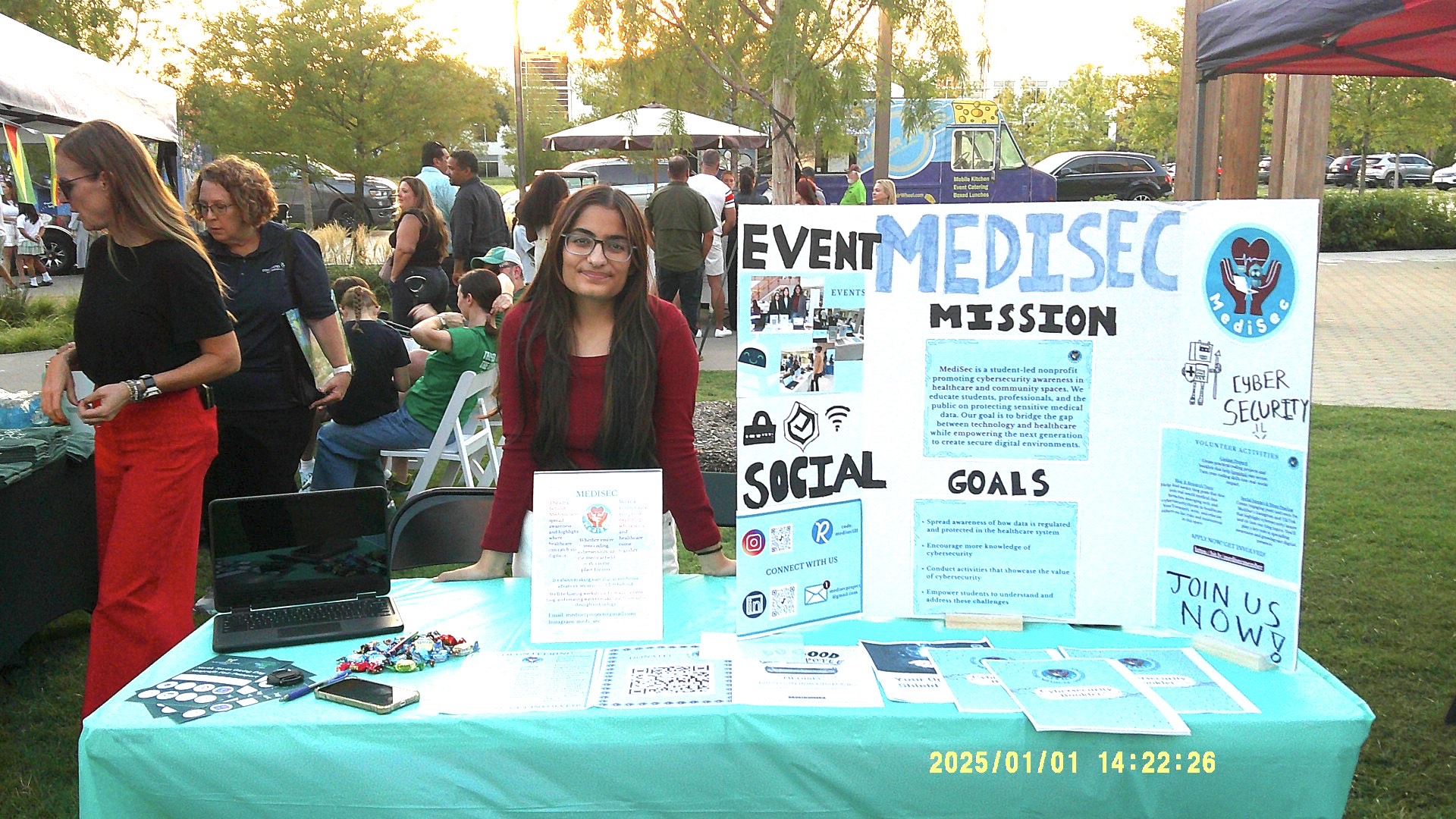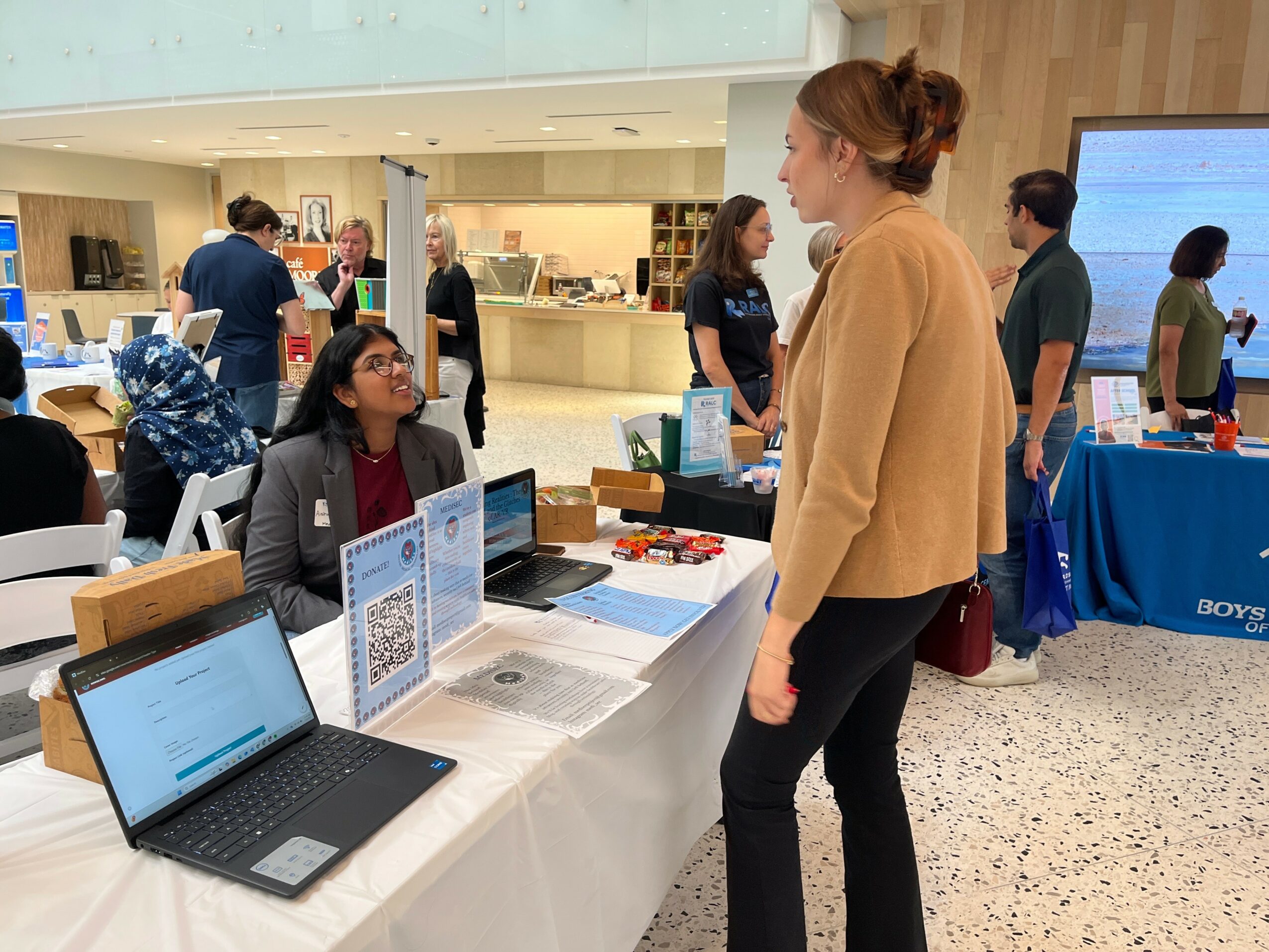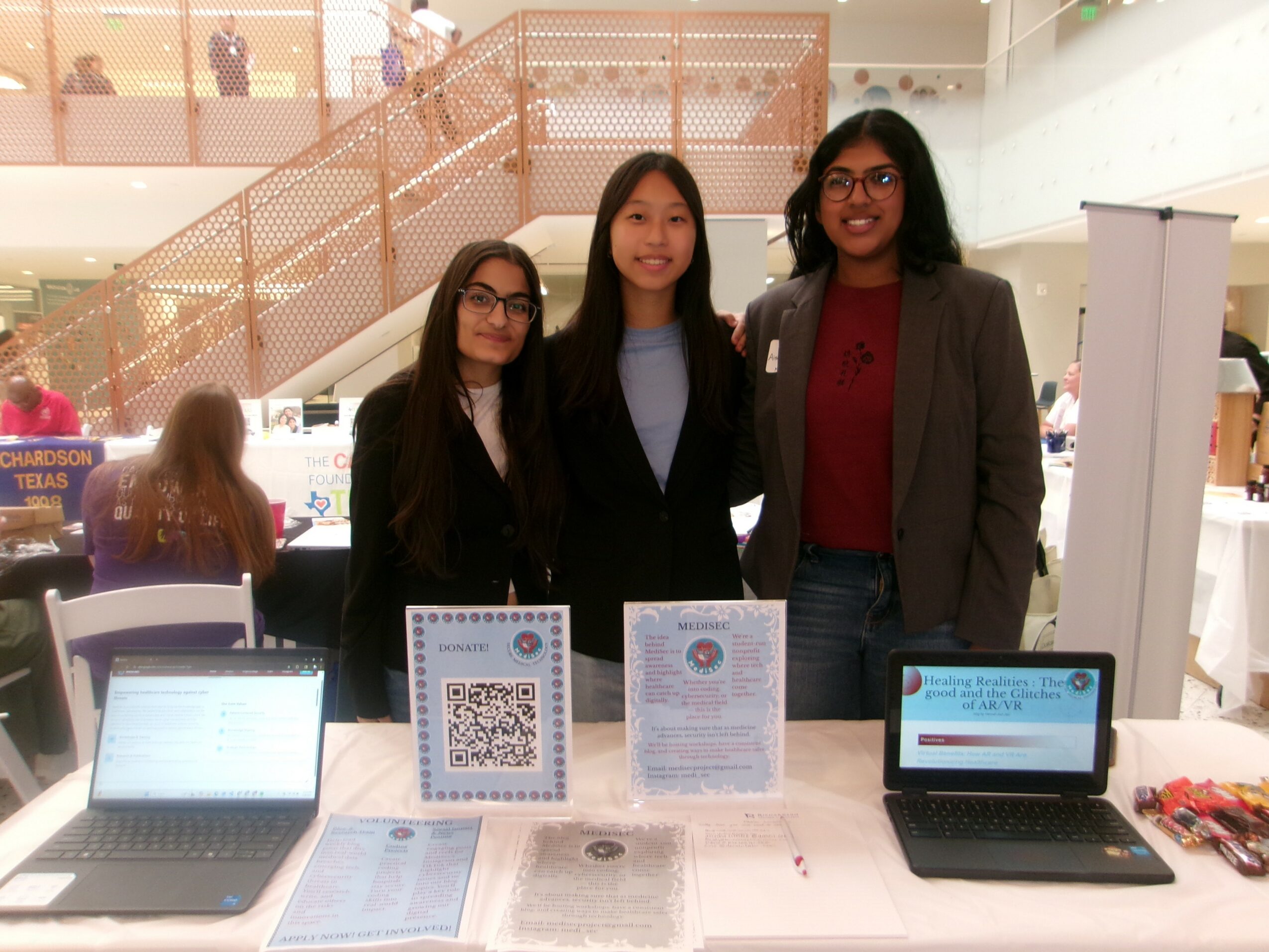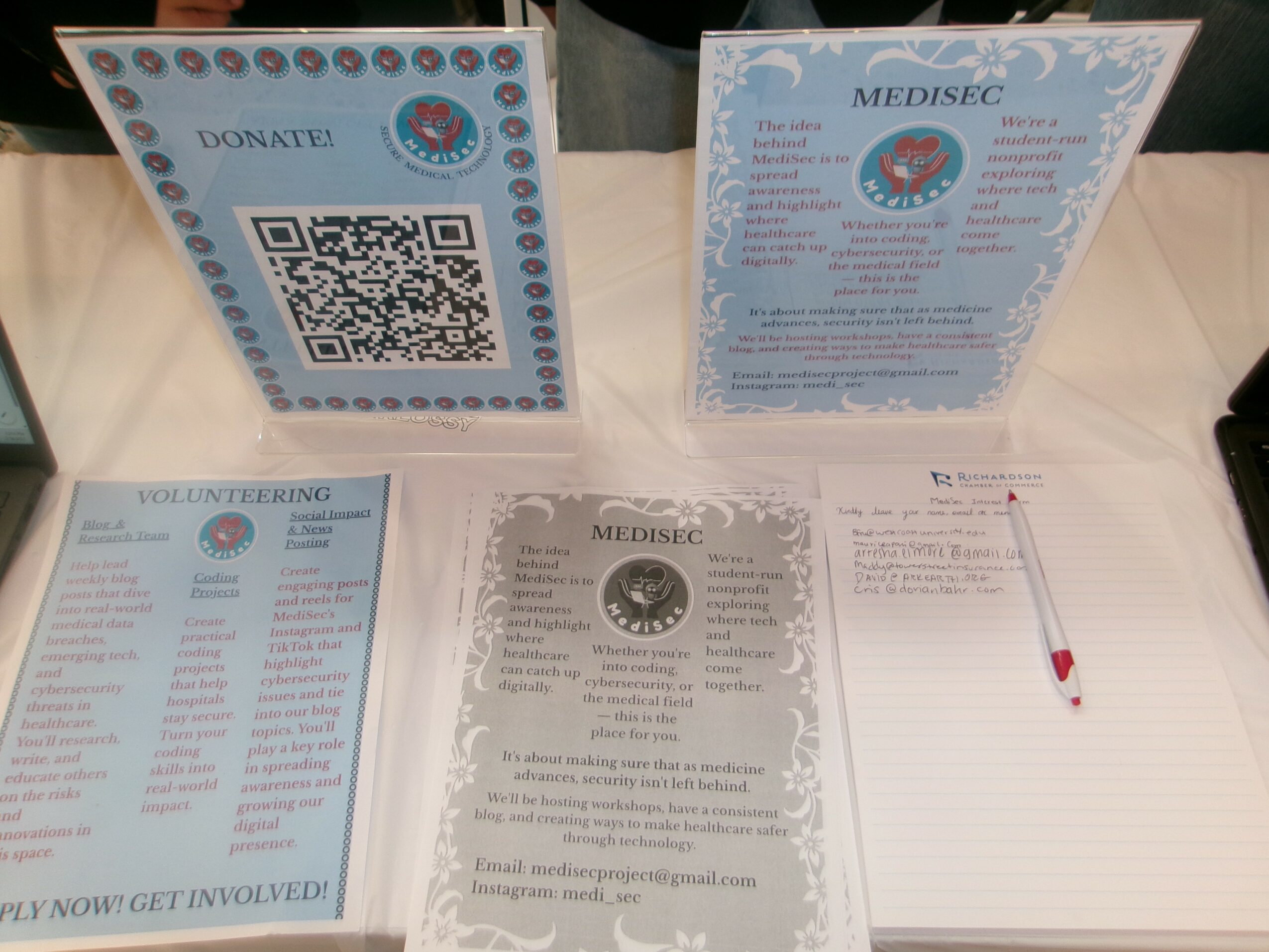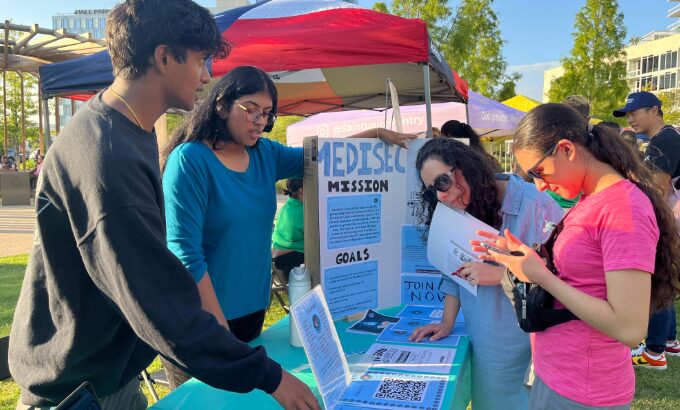

Today we’d like to introduce you to Manvi Tandon.
Hi Manvi, thanks for sharing your story with us. To start, maybe you can tell our readers some of your backstory.
I am Manvi Tandon, a junior at Emerson High School and the founder of MediSec a student led 501(c)3 fiscal nonprofit supported by HackClub. MediSec is dedicated to bridging the gap of cybersecurity and healthcare. My journey began when curiosity in tech and cybersecurity grew. I have always loved to explore things in tech, from scratch coding, to tech internships, to gaining minimal certifications in the field I was fascinated by became my inspiration to start this nonprofit off. Additionally, growing up and visiting hospitals for my own check-ups, I was always surrounded by technology. Over time, I began to notice how tech devices have can have so much data and are potentially vulnerable in terms of cybersecurity. Hospitals are designed to protect people — but what about the tools they rely on to do that? As technology becomes more advanced, cyberattacks, AI interference, and malware threats are increasingly putting patient safety at risk.
I decided that I want to create a space for such a big place where data is regularly regulated for young people to familiarize on how cybersecurity is making an impacting in the healthcare industry. MediSec is about researching different topics on how healthcare takes cybersecurity into consideration. We have made over 15+ research projects up on our website that develop an understand between variety of topics between healthcare and the role of cybersecurity. For example, one of the papers discussed that, despite working under “South Africa’s POPIA, the NHLS” was hit with a ransomware attack that affected critical systems, backup data, and effectively stopped operations in around 200 facilities. These situations tend to portray that patient safety should be taken more seriously within developing healthcare.
As MediSec had its own website and started members joining in, our goal remained to educate, empower, and inspire the next generation to take cybersecurity seriously, especially in the healthcare space where it can have a real-life impact. Being a high school junior and leading this organization has taught me leadership, project management, and the value of community impact. MediSec is still growing, but each workshop, coding project, and outreach effort brings us closer to our vision of a safer, more informed digital world.
We all face challenges, but looking back would you describe it as a relatively smooth road?
Every new idea comes with its struggles, but I believe those challenges make the journey meaningful. MediSec was officially approved as a fiscal nonprofit in May, and since then, securing consistent funding has been one of our biggest hurdles. Every project — from workshops to community outreach — relies heavily on donations and partnerships. There were times when we had big ideas but limited resources, which pushed us to get creative by hosting fundraisers, collaborating with local businesses.
But these struggles haven’t changed our mission. Our goal is to spread awareness about cybersecurity laws like HIPAA, helping young people in tech and those interested in medicine understand the vital role cybersecurity plays in healthcare. Stories about how insulin pumps and pacemakers can be hacked show how urgent these issues are — and they’ve shaped my perspective on why our work matters.
Through it all, I’ve learned that spreading awareness takes persistence, collaboration, and genuine passion. Every challenge has made MediSec stronger and reminded me why I started this journey in the first place.
Alright, so let’s switch gears a bit and talk business. What should we know about your work?
At MediSec, we focus on bridging the gap between cybersecurity and healthcare — two fields that are often overlooked when it comes to protecting patient data. As the Founder and Executive Director, I lead a team of passionate students who share the same goal: making healthcare technology safer through education, innovation, and community engagement.
Our work involves hosting workshops, awareness campaigns, and coding events that show how cybersecurity affects hospitals, medical devices, and patient privacy. We recently launched a booklet initiative to simplify these topics and plan to donate them to Dallas hospitals to promote patient data awareness and digital safety in healthcare. Additionally, we plan to host more collaborative workshops with other nonprofits and spread our message that way too!
What I’m most proud of is how quickly MediSec has grown from a small idea into a recognized student-led nonprofit making a real impact. This past summer we had been given the opportunity to showcase our idea at the Richardson Nonprofit Fair at West Coast University with almost among 50+ other nonprofits and participated in community fairs like North Texas Giving Day, where we shared our mission with other professionals in medicine or tech and inspired students to take action in cybersecurity. Additionally, our current high school volunteers from so many places around the world have made it possible to participate 15 research projects linked on our website, we also aim to continue to partnership with medicine and tech inspired mission.
What truly sets us apart is our youth-driven perspective. We’re not just spreading awareness — we’re showing that young people can innovate in fields as complex as cybersecurity and healthcare. I believe that combining technical knowledge with empathy is what makes MediSec unique; our focus isn’t only on technology, but on protecting people.
What matters most to you? Why?
What matters most to me is making a real, human impact. I’ve always believed that cybersecurity isn’t just about coding or protecting systems — it’s about protecting people. In today’s world, especially in healthcare, a single breach can expose someone’s most personal information which can cause identity theft or even financial crisis. These situations can deeply change an individuals’ point of view on healthcare security and personal identity.
Even though, we can’t change the laws or make a super big change, I have been developing a project that would potentially showcase a chart of the latest breaches occurring in United States… This way healthcare professionals and patients can get a picture of why security matters, seeing this project can motivate healthcare providers to take precautionary measures for the benefit of the healthcare industry. Additionally, this project would explain about the breaches that have occurred in particular healthcare systems. That way, the knowledge of a specific breach can help people introduce themselves with cybersecurity.
Through MediSec, I’ve learned that even small efforts can create ripple effects. Whether it’s educating someone about data safety through regulary posting on our socials or showcase our mission at fairs, or making cybersecurity information filled booklets for hospitals— every step forward counts.
Contact Info:
- Website: https://sites.google.com/view/medisec1/medisec
- Instagram: https://www.instagram.com/medi_sec
- LinkedIn: https://www.linkedin.com/company/medisecproject/?viewAsMember=true
